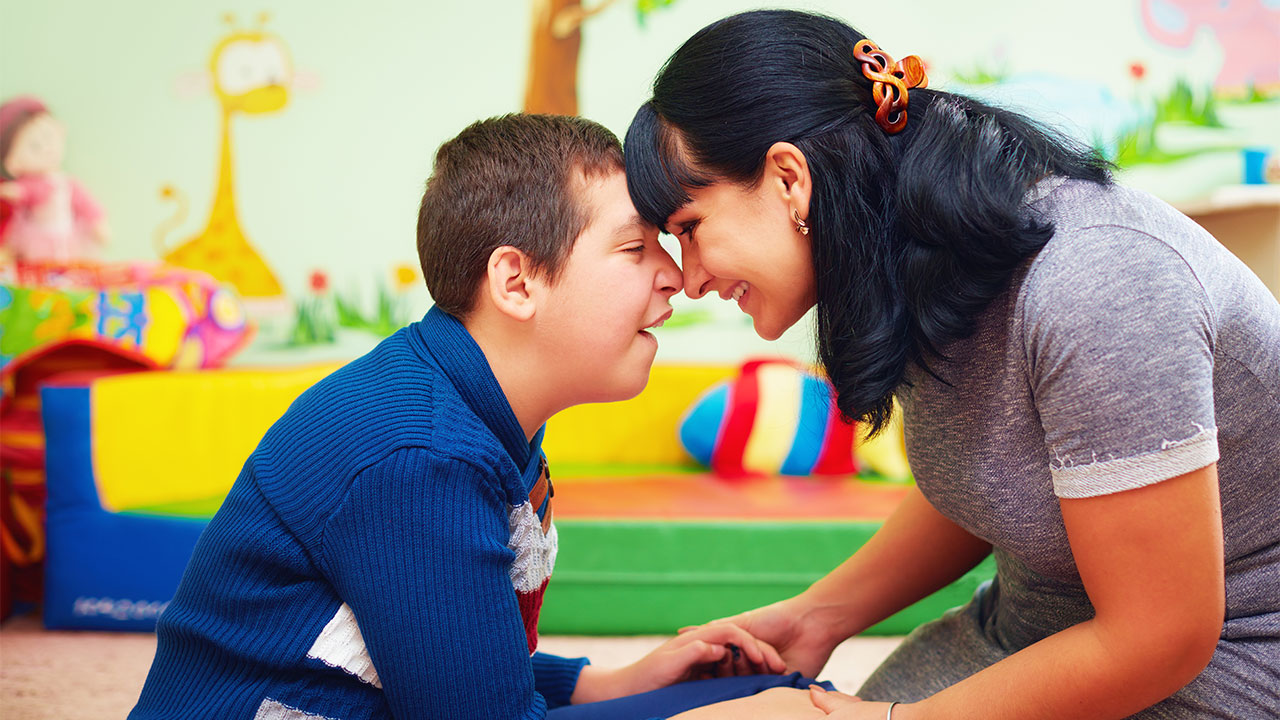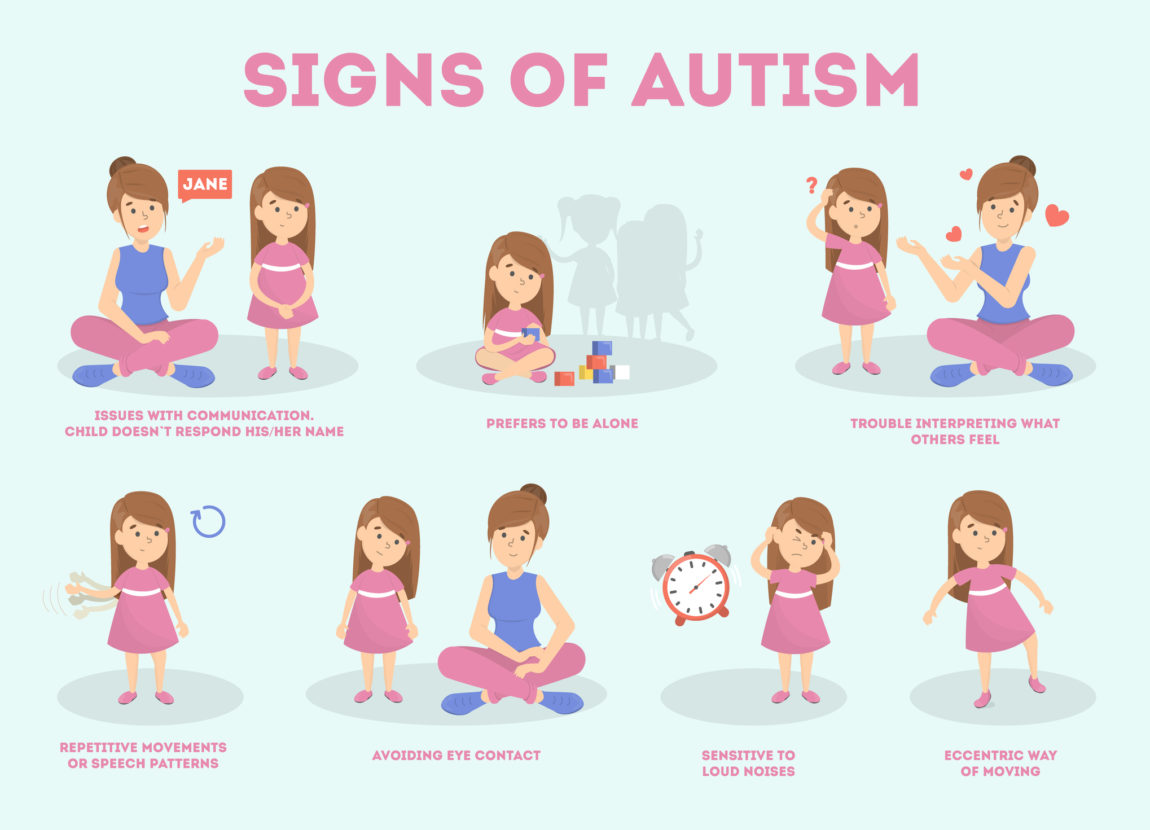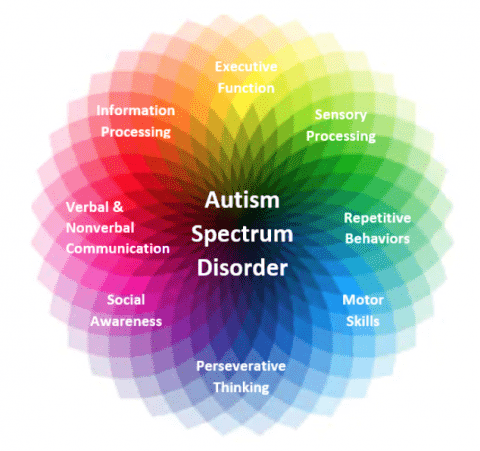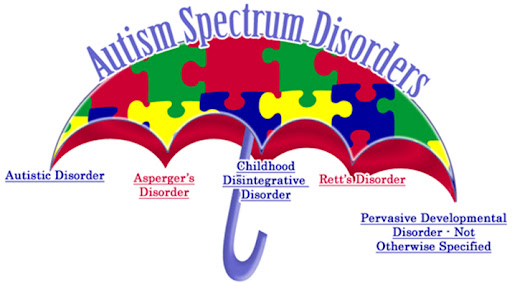Autism spectrum disorder (ASD) is a developmental disability that typically appears during the first three years of life. It affects how children learn, communicate, behave and interact with others. One can diagnose ASD when there are delays in the development of certain skills including social interactions, motor skills, or verbal communication. There are many different types of autism spectrum disorders; some people may only have mild symptoms while others will need lifelong support to live independently.
Contents
What is Autism Spectrum Disorder?

Autism spectrum disorder affects how children learn, communicate, behave and interact with others. Autism spectrum disorder can range from mild to severe symptoms and some people may need lifelong support to live independently.
Symptoms of Autism Spectrum Disorder

The symptoms for autism spectrum disorders are broken down into two categories: social communication, and restricted interests or repetitive behavior. Symptoms usually begin within the first three years of life when a child is not yet speaking, but in some cases, they may be seen later after age five.
- Difficulty with social interactions and relationships – For example, difficulty making eye contact or sharing experiences. Symptoms may also include the lack of interest in others and not responding to others’ emotions.
- Language problems – The person might be able to understand the language but have issues using it correctly. They might also have difficulty following conversations or keep repeating themselves.
- Delays in motor skills – This can include problems with walking, sitting, and crawling.
- Difficulty with changes in routine – Autistic people may become upset if there are any changes to their daily schedule or surroundings. This could be anything from a different teacher to a change in their favorite TV show.
- Repetitive behaviors – Examples include hand flapping, rocking back and forth, or spinning an object around instead of playing with it as most children would do. These repetitive acts are driven by the person’s desire for comfort, rather than out of fear or anxiety.
Causes Of Autism Spectrum Disorder
We don’t know what causes autism spectrum disorder. It might be in your genes and your environment, but we can’t say for sure. Some research suggests that some things can make a baby more likely to have autism. When the mother is old, the baby might get autism. This happens because of toxins or problems during pregnancy. However, there is no one definitive answer and more research is needed.
Negative Impact Of Autism Spectrum Disorder

People with autism spectrum disorder often face several challenges, including social interaction and communication problems. They may be seen as isolated by their peers because of the different ways they interact socially. They may also have a hard time holding down a job or completing their education because of the challenges they face. In some cases, people with autism spectrum disorder can be violent and aggressive which can put them and others in danger.
Many people with autism spectrum disorder also go through mental health challenges. Anxiety and depression are common among this population, which can be caused by the different symptoms they face daily; for example, sensory processing issues or social interaction problems that make it difficult to connect with others.
Diagnosis Of Autism Spectrum Disorder
There is no definitive test for diagnosing autism spectrum disorder. A pediatrician or psychologist will usually conduct a series of tests and interviews to help make a diagnosis. This may include the Autism Diagnostic Observation Schedule (ADOS), which is a tool used to measure social communication, restricted interests/repetitive behavior, and adaptive skills.
Treatment For Autism Spectrum Disorder
There is no one-size-fits-all approach to treating autism spectrum disorder, but a variety of treatments and therapies may be beneficial. These include:
- Speech and language therapy – This can help children with communication difficulties learn how to speak and understand others.
- Occupational therapy – This can help children with sensory issues and motor skills learn how to process information from their senses.
- Behavioral therapy – This helps children cope with adversity, reduce anxiety, and improve social communication.
- Medication – There are a few medicines that may treat autism spectrum disorder symptoms such as irritability or hyperactivity. However, there is hardly any evidence on the effectiveness of these medications.
Homeopathy Treatment
Many homeopathic remedies can treat autism spectrum disorder. Some of the most common include:
- Aconitum – This is for children who are very anxious and have a lot of energy. They may also have a high-pitched voice.
- Belladonna – This is for children who are extremely active and have a lot of anger. They may also be very stubborn.
- Calcarea carbonica – This is for children who are very passive and withdrawn. They may also be clumsy and have poor coordination.
- Ferrum phosphoricum – This is for children who are very lethargic and have a poor appetite. They may also be pale and have low energy levels.
- Kali phosphoricum – This is for children who are extremely bright, but have a lot of anxiety and social problems.
- Lycopodium – This is for children who are very intelligent, but shy and withdrawn. They may also be lethargic and have poor coordination.
Conclusion
Autism is a neurodevelopmental disorder that affects social skills, communication, and imagination. It can appear as early as 18 months of age or later in life. The severity of symptoms varies from person to person. Many people do not know that autism is a disability. They think it’s just an illness. But this is not true. Some people think that autistic children don’t have any feelings. This is wrong. Autistic children feel emotions, just like everyone else. People who are autistic can have feelings. They may not show what they are feeling the same way that other people do. It takes understanding to figure out what an autistic person is feeling by looking at their expression.
Most autistic people are very intelligent and they just need the right support to thrive in life. Autism is treatable so even if you or your loved one has ASD, never lose hope! Some people on the spectrum can live happily ever after. Autism doesn’t have to stop them from achieving their dreams.
If you are looking for affordable Online Counseling MantraCare can help: Book a trial therapy session



